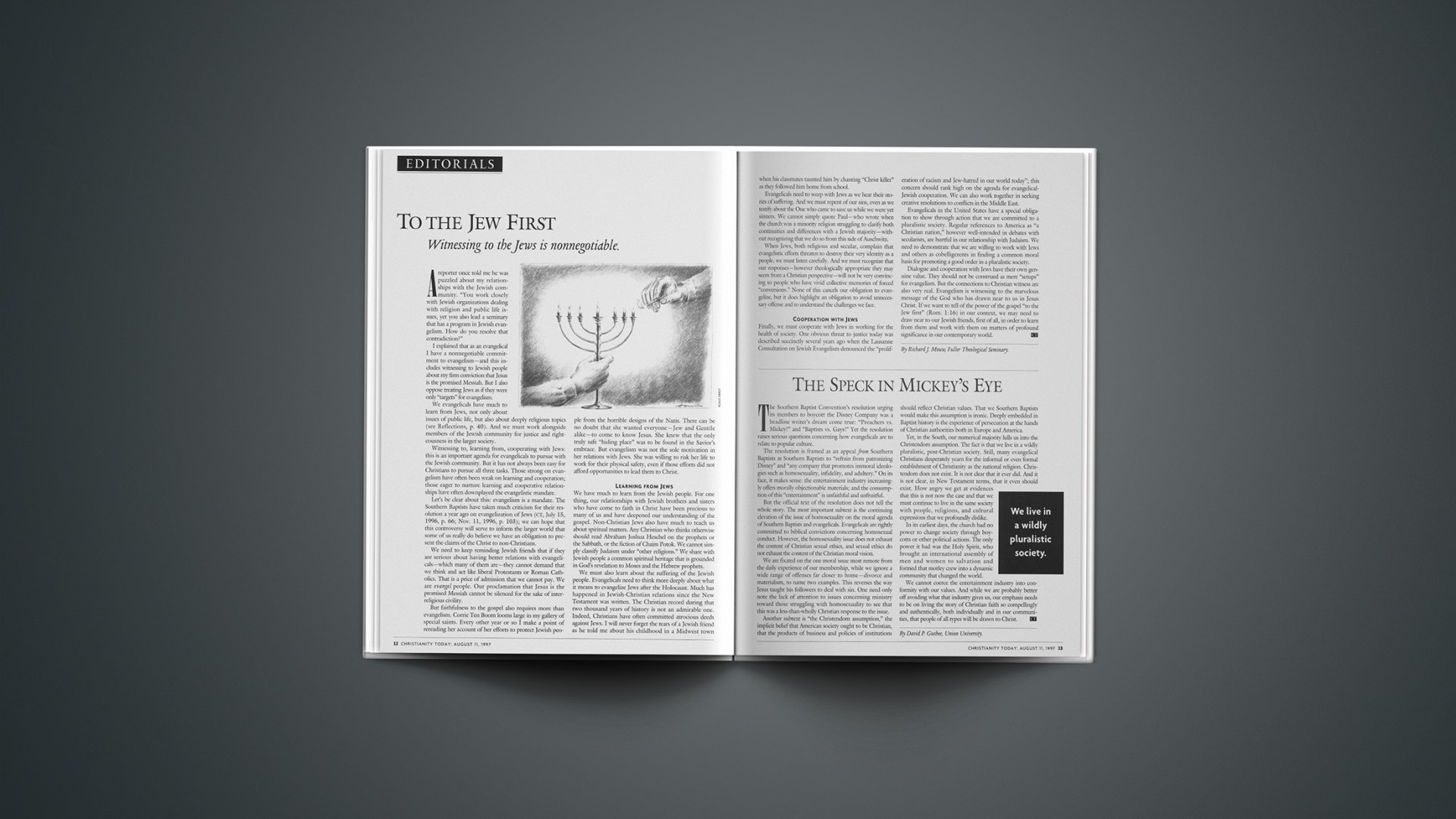The Southern Baptist Convention’s resolution urging its members to boycottthe Disney Company was a headline writer’s dream come true: “Preachers vs.Mickey!” and “Baptists vs. Gays!” Yet the resolution raises serious questionsconcerning how evangelicals are to relate to popular culture.
The resolution is framed as an appeal from Southern Baptiststo Southern Baptists to “refrain from patronizing Disney” and”any company that promotes immoral ideologies such as homosexuality, infidelity,and adultery.” On its face, it makes sense: the entertainment industryincreasingly offers morally objectionable materials; and the consumptionof this “entertainment” is unfaithful and unfruitful.
But the official text of the resolution does not tell the whole story. Themost important subtext is the continuing elevation of the issue of homosexualityon the moral agenda of Southern Baptists and evangelicals. Evangelicals arerightly committed to biblical convictions concerning homosexual conduct.However, the homosexuality issue does not exhaust the content of Christiansexual ethics, and sexual ethics do not exhaust the content of the Christianmoral vision.
We are fixated on the one moral issue most remote from the daily experienceof our membership, while we ignore a wide range of offenses far closer tohome—divorce and materialism, to name two examples. This reverses the wayJesus taught his followers to deal with sin. One need only note the lackof attention to issues concerning ministry toward those struggling withhomosexuality to see that this was a less-than-wholly Christian responseto the issue.
Another subtext is “the Christendom assumption,” the implicit belief thatAmerican society ought to be Christian, that the products of business andpolicies of institutions should reflect Christian values. That we SouthernBaptists would make this assumption is ironic. Deeply embedded in Baptisthistory is the experience of persecution at the hands of Christian authoritiesboth in Europe and America.
Yet, in the South, our numerical majority lulls us into the Christendomassumption. The fact is that we live in a wildly pluralistic, post-Christiansociety. Still, many evangelical Christians desperately yearn for the informalor even formal establishment of Christianity as the national religion.Christendom does not exist. It is not clear that it ever did. And it is notclear, in New Testament terms, that it even should exist. How angry we getat evidences that this is not now the case and that we must continue to livein the same society with people, religions, and cultural expressions thatwe profoundly dislike.
In its earliest days, the church had no power to change society through boycottsor other political actions. The only power it had was the Holy Spirit, whobrought an international assembly of men and women to salvation and formedthat motley crew into a dynamic community that changed the world.
We cannot coerce the entertainment industry into conformity with our values.And while we are probably better off avoiding what that industry gives us,our emphasis needs to be on living the story of Christian faith so compellinglyand authentically, both individually and in our communities, that peopleof all types will be drawn to Christ.
Copyright © 1997 Christianity Today. Click for reprint information.










